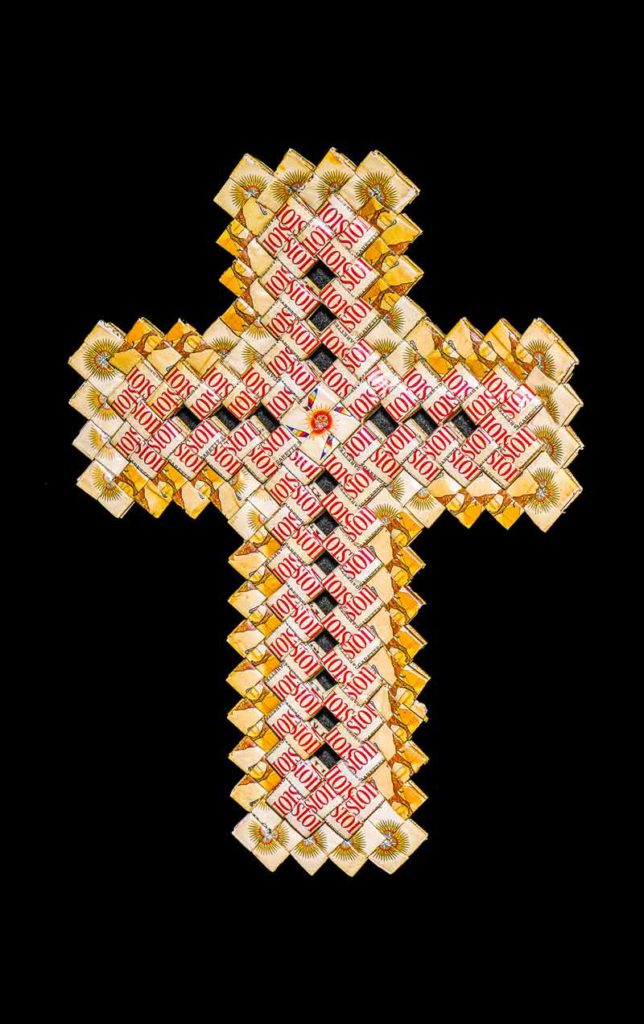ABOUT
The Cell Solace Collection presents hand and shoulder bags, jewelry boxes, and unique artifacts all completely made of folded woven cigarette cartons and paper by inmates in US prisons. Surprising design sensitivities and remarkable artisan skills are evident in the sophisticated and well-crafted containers, many of which eventually found their way to specialized markets. Others were gifted by the inmates to sweethearts, wives, family and friends on the outside.
The works evoke an era when smoking was widely accepted as a social norm, and before smoking was banned in US prisons. At that time, cigarettes were prized commodities behind bars. The availability of cigarette containers and endless time, combined with the introduction of purse weaving as a craft into the prisons allowed inmates a new arena of creativity and a humanizing opportunity to connect to the world beyond the incarceration.
Cell Solace was assembled by Antonio N. Inniss who grew up in Jamaica Plain, Massachusetts and spent his formative years in Boston and Los Angeles pursuing an interest in music. His father, whose friend Terrence was incarcerated at New York’s Rikers Island, unintentionally planted the seed for the collection when he received two of Terrence’s purses: one for Inniss’ mother and the other for Terrence’s girlfriend. They fascinated young Inniss who shared his enthusiasm for them, and eventually found his family and friends giving him new bags that they encountered. He thus became a collector and the bags and purses became his passion.
He stepped up his collecting activity during a period when he worked for Amtrak and travelled widely. Inniss appreciated the discipline, hard work, creativity and inventiveness invested by inmates in producing the bags. He said, “Sometimes beautiful things come out of the worst conditions.” In the end, the bags and purses are evidence of the prisoner’s humanity and desire to retain relationships in the outside world. The bags and boxes constituted a specialized form of communication—of expression—that could quiet and calm the soul, thus the title “Cell Solace.”
Incarceration remains a major issue for black and brown communities all across America. It disrupts families and feeds social collapse, poverty and fragmented social relationships. Increasingly, it targets woman and girls as it always has men and boys. Since the Civil War and Reconstruction eras, public policy has victimized and dehumanized black communities. A prime expression of the abusive and unjust legal system has been the oppressive operation of prisons and jails. The Cell Solace Collection evinces that the flickers of love, creative ingenuity, and hope are not extinguished — even in the absence of freedom.

© 2022 Cell Solace | All Rights Reserved

